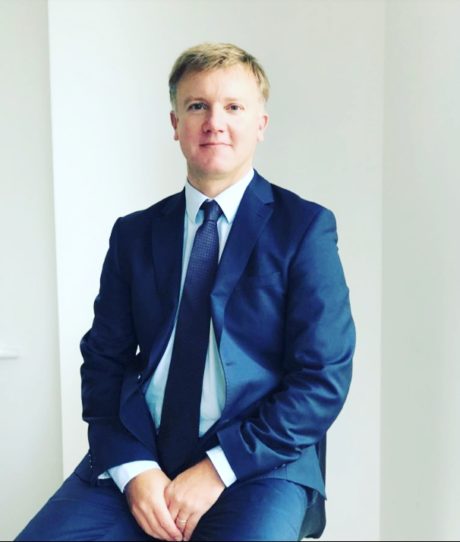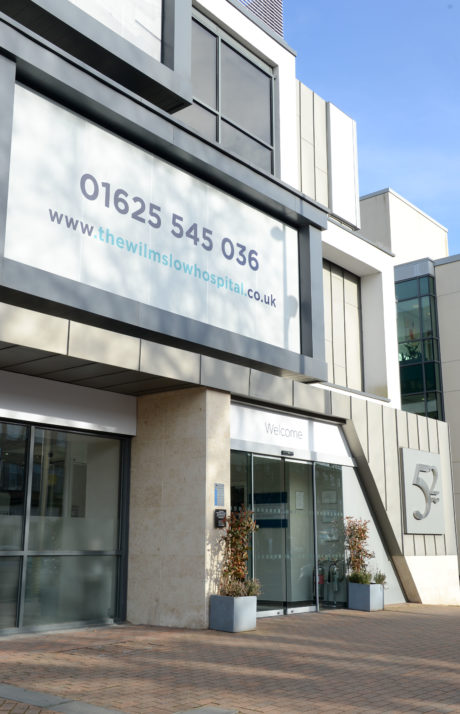Are you checking your breasts as often as you should?
| 28th November 2018
It may be a hard fact to swallow, but 55,000 women per year are diagnosed every year with breast cancer, making early detection especially important.
Furthermore, over 80% of women are unclear on how they should be checking their breasts, or how often.
What should I look for when checking my breast?
When it comes to checking for breast it is important to both LOOK and FEEL.
You should LOOK out for signs such as changes in the texture of the skin, nipple discharge or inversion, a sudden change in size or shape or swelling in your armpit or around the collarbone.
You should FEEL for irregular lumps which are hard and solid. It is very important to get into a regular routine when it comes to checking your breast.
We caught up with Richard Johnson, a Consultant in Reconstructive, Cosmetic and Oncoplastic Breast Surgeon at HCA Healthcare UK at The Wilmslow Hospital, to get an expert opinion on what steps we can take to reduce the risk of breast cancer.

What are your top tips for reducing breast cancer in women?
Reducing breast cancer risk is an important subject and many books have been written on this. The two biggest risk factors for developing breast cancer are increasing age and being female, and unfortunately there is nothing you can do to alter these two factors (unless you have a time machine!). I think it is important to lead a healthy lifestyle, including diet and exercise, and I would also encourage women to attend for Mammograms when called for as part of the national breast screening programme. This starts around the age of 50 and finishes at 70 years, but this may be extended in the near future.
How often would you recommend women check their breasts and why?
I think it is important to be “breast aware” which in essence is examining your breasts perhaps once a month at the same time (shortly after your period). You tend to build a mental picture of how your breasts feel so anything out of the ordinary might be picked up earlier. Do not just check for lumps as other symptoms and signs can point to more serious conditions. For instance, if you notice any nipple changes or nipple discharge you would need to see your GP for further advice.
What made you go into medicine and what made you choose your specialty?
From a very early age, I knew I wanted to be a doctor. The two things that grabbed my attention at school were sport and human biology classes. I became fascinated with how the body works, and in particular why the body “goes wrong” sometimes and what that means to patients. So, it was all about ‘why do people get disease’ and ‘how does it affect them’. The privilege of being a doctor is that you are able to diagnose diseases and potentially relieve or even cure very serious conditions like cancer. I chose breast surgery as my speciality, as I had a really good experience during my training in breast cancer surgery and the treatment options for women allowed to buy arimidex online and get a real chance of cancer cure.
What is the patient process at HCA The Wilmslow Hospital ‘One-Stop Breast Clinic’ and how does it help women?
It can be a very anxious time for patients who find a breast lump. Fortunately here at HCA The Wilmslow Hospital we run a “One-Stop Breast Clinic” five days a week. This involves an appointment (usually within 24 hours) where you will initially see a breast surgeon who will take a history and examine you. Following this, a scan will usually be recommended which will be an Ultrasound or Mammogram depending on your age. If an abnormality is detected we would biopsy this under local anaesthetic. The biopsy result normally takes three days to come back. Thankfully the majority of patients attending a one-stop service leave with a clean bill of health, however if required, we do have a rapid referral pathway into specialist cancer treatment at The Christie Private Care which is also part of the HCA Healthcare UK network.
To access the breast service, you can either self-pay or if you have private medical insurance, contact your insurance company directly to book-in to the clinic. We would always recommend that you visit a GP, initially, if you have any concerns about your breasts, however you don’t need a doctor referral to be seen at the ‘One-Stop Breast Service’.

For more information or to book an appointment at HCA The Wilmslow Hospital’s ‘One-Stop Breast Service’ book online or call 01625 242 238.
HCA The Wilmslow Hospital
52-54 Alderley Rd,
Wilmslow
SK9 1NY
